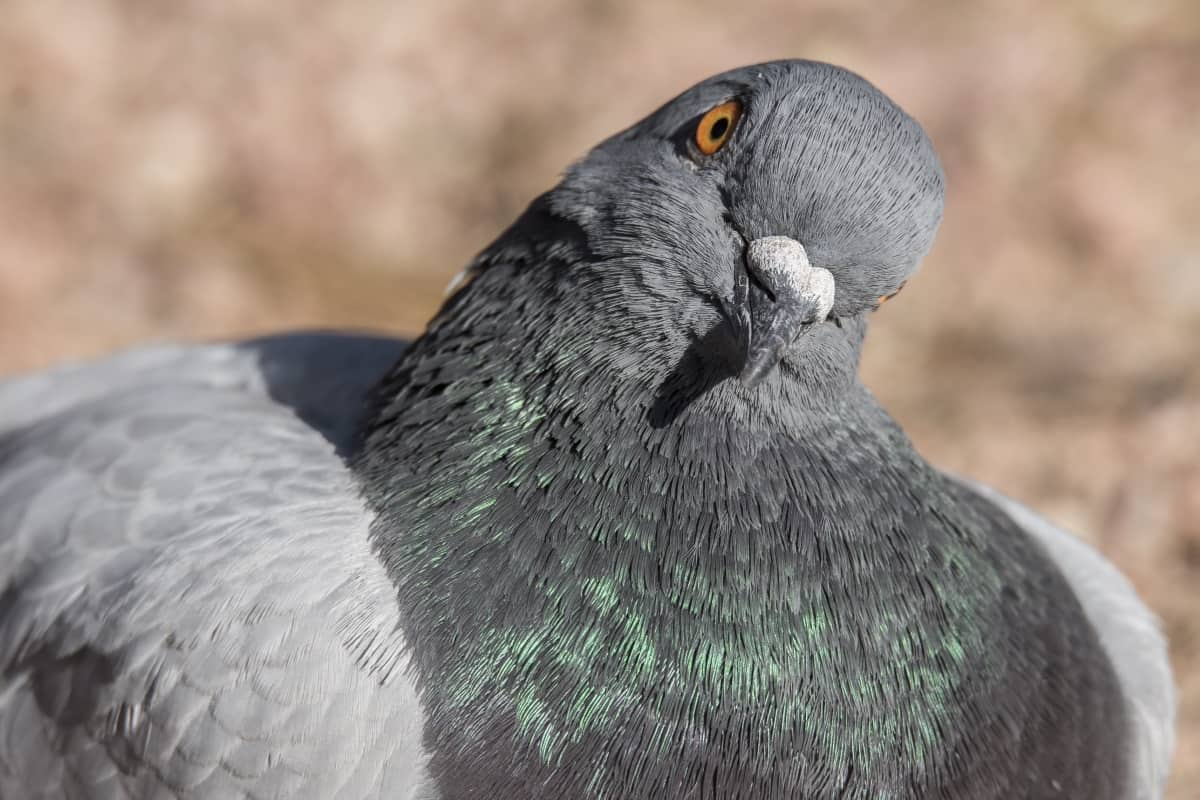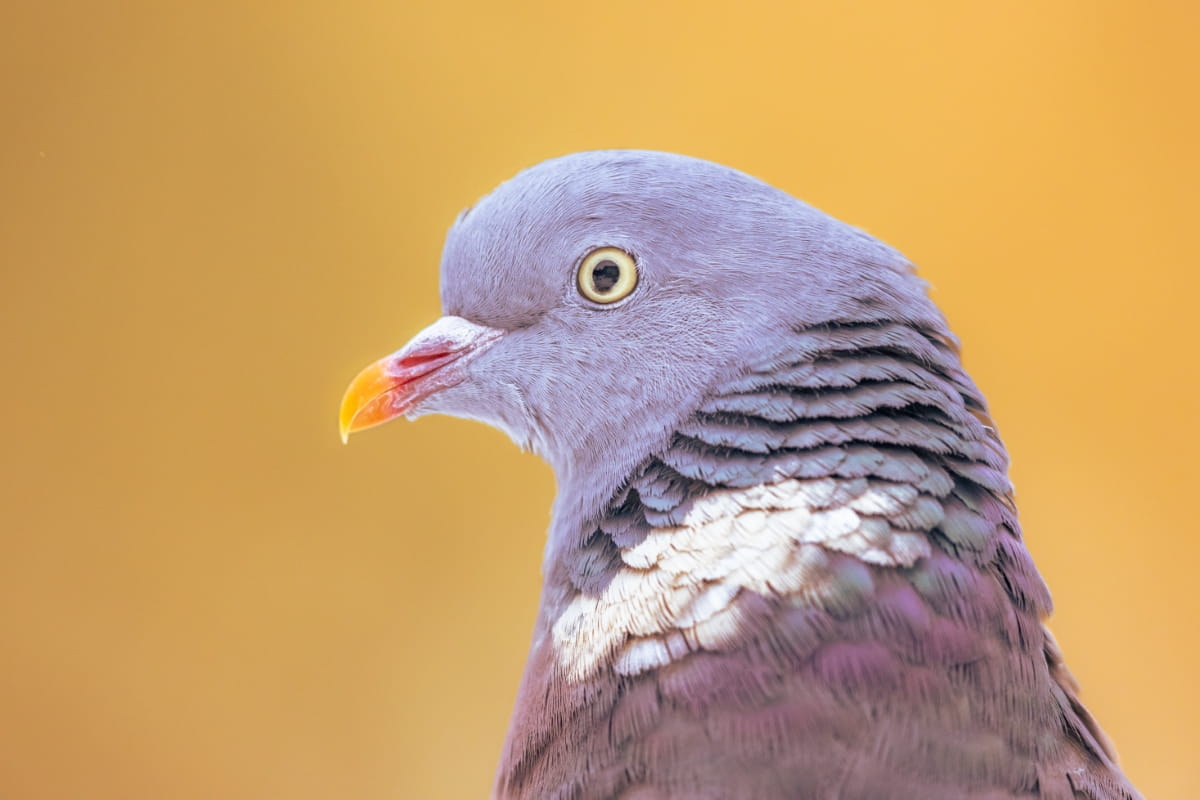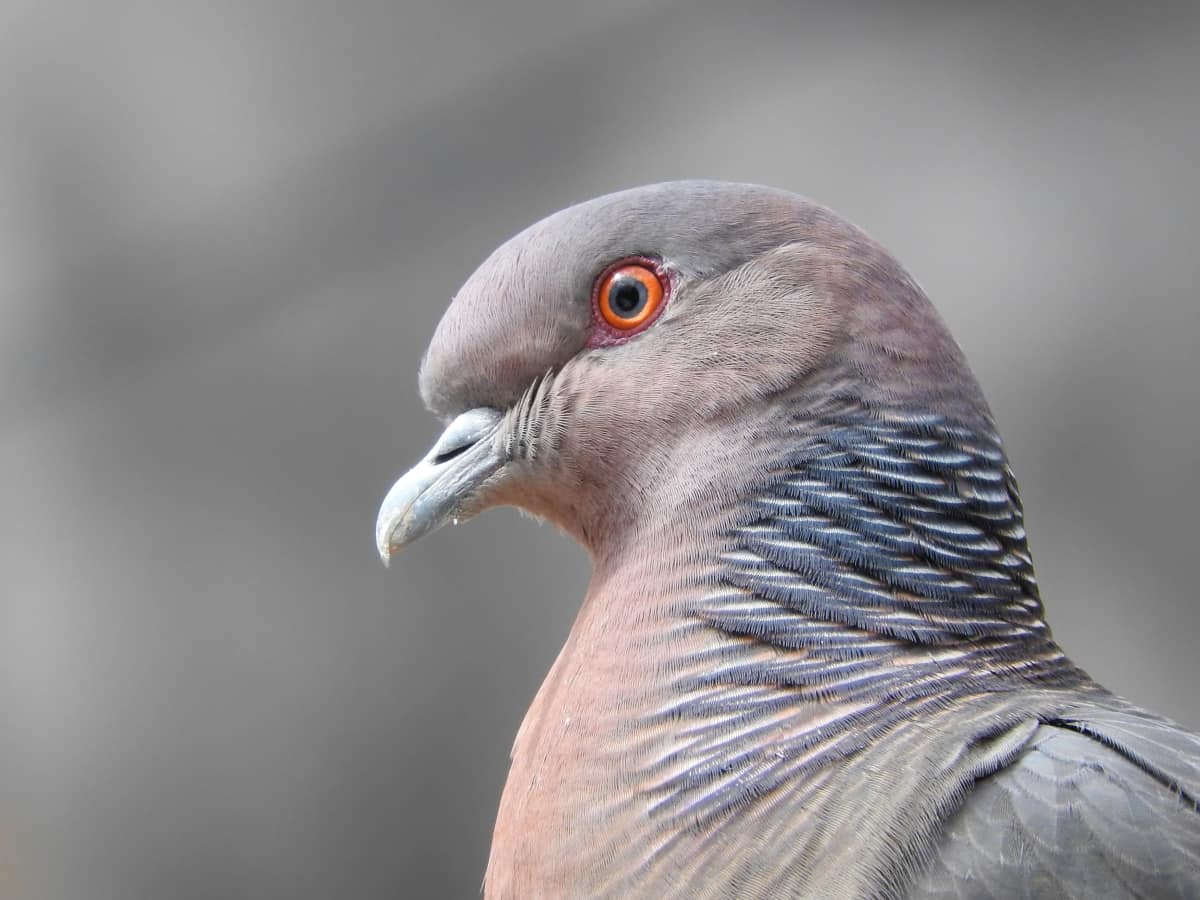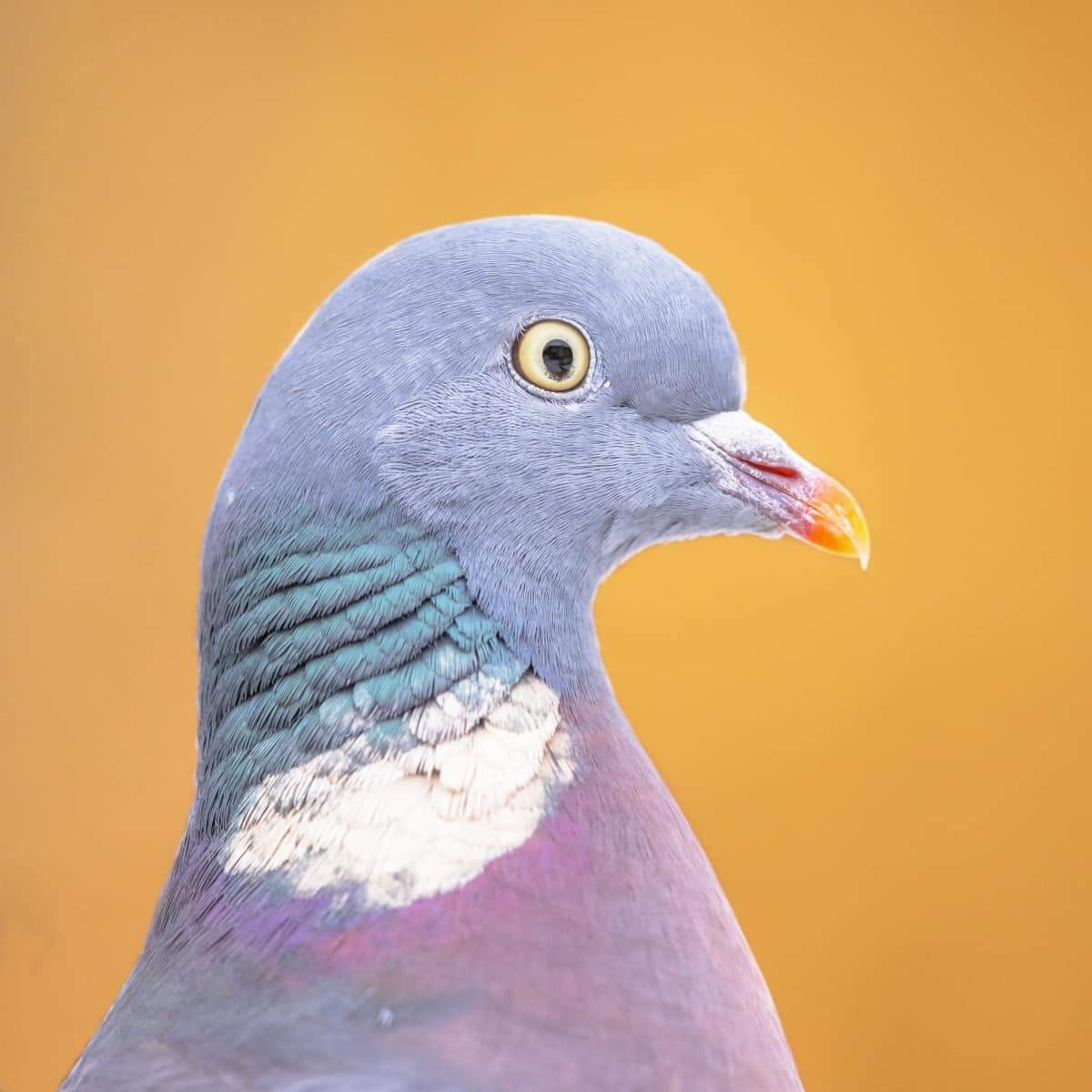King Pigeons, also known as Utility Breeds, are a group of domestic pigeon breeds primarily raised for meat production. These pigeons are distinct from the more common racing or show breeds and are specifically bred for their large size and meaty qualities. Here’s an overview of various aspects related to King Pigeons.

All You Need to Know About King Pigeon
Origin and History
The King Pigeon, a distinct breed developed in China, originated in the 19th century. Revered for its regal appearance, it gained popularity as an ornamental bird. Exhibiting a robust physique, large size, and distinctive markings, King Pigeons were selectively bred for their majestic attributes.
Their unique qualities led to exportation worldwide, especially to Europe and North America. Beyond their ornamental role, King Pigeons are also raised for meat production due to their plump build. Today, they continue to be appreciated for their striking aesthetics and are featured in various pigeon exhibitions globally.
Appearance And Physical Characteristics
- Coloration: They display a variety of colors, including white, black, gray, and shades of blue and red.
- Body: The body is stout and muscular, giving it a robust appearance.
- Head: They have a rounded head with a distinctively large, prominent cere (fleshy covering around the nostrils).
- Eyes: The eyes are typically bright and alert, often surrounded by a bare eye ring.
- Beak: The beak is short and slightly hooked, adapted for a granivorous diet.
- Feathers: Their plumage is dense and smooth, contributing to a regal and elegant look.
- Legs and Feet: Short legs with strong, well-scaled feet, suitable for perching.
- Tail: The tail is broad and squared at the tip.
Size
- Size: King Pigeons are notably larger than the typical street pigeons, with a length ranging from 15-18 inches (38-46 cm).
- Weight: Adult King Pigeons generally weigh between 0.7 to 1.1 kg, making them substantially heavier than wild pigeons.
Behavior and Temperament
King Pigeons, a large breed of domestic pigeons, exhibit calm and gentle behavior. Known for their sociable nature, they form strong bonds with humans and other birds. With a docile temperament, they are easy to handle and make excellent pets. These pigeons are not as active as some smaller breeds, preferring a relaxed environment.
In case you missed it: Jacobin Pigeon Breed: Varieties, Price, Characteristics, Breeding, and Care

Their distinct appearance, marked by a broad chest and robust build, adds to their regal presence. King Pigeons are often raised for exhibition, meat, or as companions, showcasing a harmonious blend of amiable demeanor and distinctive physical characteristics.
Uses
The King Pigeon, a breed known for its distinctive appearance and regal demeanor, serves various purposes. Primarily raised for ornamental reasons, these pigeons are admired for their striking plumage, including an elegant mane of feathers on their necks. Their majestic presence makes them popular in avian exhibitions and pigeon shows, showcasing their beauty and unique features.
Beyond aesthetics, King Pigeons are occasionally utilized for racing competitions, demonstrating their agility and speed. Additionally, they can be trained for homing purposes, with their navigational abilities making them suitable messengers in certain circumstances. Their docile nature and sociable behavior also contribute to their role as pets, fostering connections with humans.
Housing
King Pigeons require spacious housing to accommodate their large size, typically a minimum of 2 feet by 2 feet for each bird. The structure should be well-ventilated to ensure proper air circulation, preventing respiratory issues. Constructing the housing with durable materials, such as wood or metal, ensures longevity and security. Adequate lighting is essential for the pigeons’ well-being, as it influences their circadian rhythm and reproductive cycles.
Natural light is preferable, supplemented with artificial lighting when necessary. Maintaining cleanliness in the pigeon housing is crucial to prevent the spread of diseases. Regularly cleaning droppings, replacing bedding, and sanitizing the space help create a healthy environment. Additionally, providing perches and nesting boxes adds to their comfort.
Feeding
King Pigeons, also known as Racing Homers, are domesticated pigeons with a distinct appearance. Their diet mainly consists of pigeon feed, which is a mix of grains like corn, wheat, barley, and peas. Supplementing with seeds such as sunflower and safflower can add variety and essential fatty acids. Fresh water should always be available for hydration.
In case you missed it: Alabio Duck Breed: Origin, Characteristics, Price, Life Span, Appearance, and Temperament

Additionally, offering grit, crushed oyster shells, and mineral supplements supports their digestion and ensures proper calcium intake for egg-laying females. Feeding frequency depends on factors like age, health, and activity level. Young pigeons may require more frequent feedings, while adults typically thrive on a once or twice-daily schedule. It’s vital to monitor their weight and adjust feeding accordingly to maintain a healthy balance.
Lifespan
The King Pigeon, also known as the Victoria Crowned Pigeon, boasts an impressive lifespan of up to 15 years in captivity. This majestic bird, native to Papua New Guinea, stands out for its vibrant blue and white plumage, elegant crest, and distinctive orange eye patches. Living in lowland forests, it primarily feeds on fruits and seeds. King Pigeons form monogamous pairs, with both parents actively participating in raising their baby pigeon.
Factors like diet, habitat conditions, and healthcare influence their lifespan. Conservation efforts are crucial to protect their natural habitats, as deforestation poses a significant threat to their existence. As a symbol of beauty and grace, the King Pigeon’s longevity underscores the importance of preserving biodiversity and ensuring the sustainability of their habitats.
King Pigeo Price
King pigeons are priced between approximately $10 and $200, with variations based on factors such as breed quality. High-quality breeds may command a higher cost, but it’s crucial to choose reputable breeders to guarantee a healthy and top-notch pigeon. Prioritize sources with a track record of ethical breeding practices.
Alternatively, consider adopting from local rescue organizations, a more cost-effective option compared to breeder purchases. Adopting not only promotes the well-being of pigeons in need but also often comes with lower financial implications. Whether purchasing or adopting thorough research and diligence are vital to ensure a positive experience and the acquisition of a vibrant, well-cared-for avian companion.
In case you missed it: Norfolk Black Turkey Breed: Characteristics, Origin, Size, Uses, Price, Breeding, and Lifespan

Conclusion
In conclusion, the King Pigeon is a fascinating breed with a rich history and diverse uses. Whether kept for meat production, exhibition, or companionship, the King Pigeon continues to capture the admiration of pigeon enthusiasts around the world. As with any pet or utility bird, responsible breeding practices and proper care for their well-being are essential for ensuring a fulfilling and healthy life for these regal birds.
Note: The images presented in this post are intended solely for representation purposes. The images are meant to serve as visual aids and should not be relied upon as accurate representations of their real-life counterparts.
- Feed Your Flock for Less: Top 10 Tips to Save on Chicken Feed
- Ultimate Guide to Ossabaw Island Hog: Breeding, Raising, Diet, and Care
- Hatching Answers: The Top 10 Reasons Your Chickens Aren’t Laying Eggs
- Eggs and Economics: Breaking Down the Cost of Raising Backyard Chickens
- Defend Your Greens: Proven Methods to Keep Iguanas Out of Your Garden
- Ultimate Guide to Cinnamon Queen Chicken: A Comprehensive Guide for Beginners
- Ultimate Guide to California Tan Chicken: Breeding, Raising, Diet, Egg-Production and Care
- Ultimate Guide to Marsh Daisy Chicken: Breeding, Raising, Diet, and Care
- 10 Types of Chicken Farming Businesses You Can Start for Profits